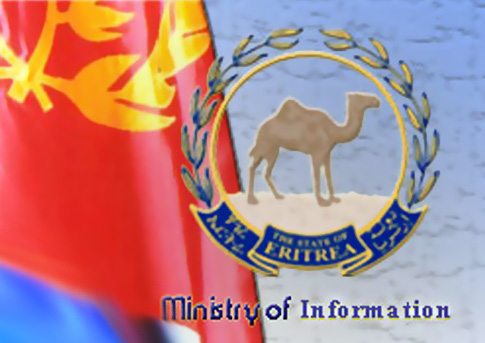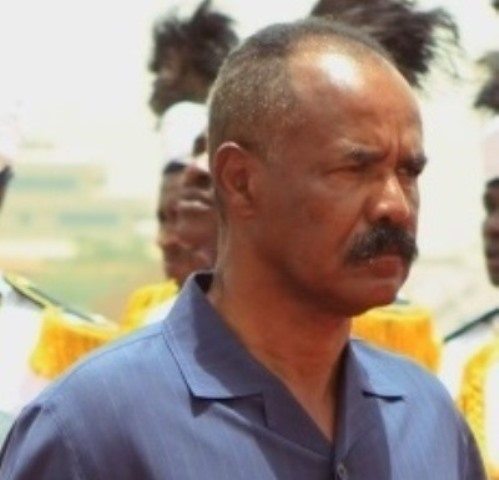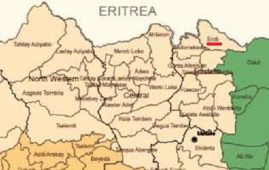A leaked Cable of US Embassy Addis Ababa presents a May 2008 meeting between Ethiopian Prime Minister Meles Zenawi and US Ambassador Yamamoto, joined by embassy officers.
The Ambassador requested the meeting to complain about ‘the high rate of cancellations and non-acceptance of training opportunities’ by Ethiopian Army Chief of Staff General Samora.
Among the complaints cited in the Cable:
of the 42 training slots offered in the past two years, General Samora rejected 29, including the three war college slots and other types of specialized training.
Ethiopia had paid for Israeli contractors to provide some assistance and other limited training. The U.S. did not seek to replace Israel but to complement the other training Ethiopia’s military received from other countries, which ranged from Israel to Russia and China.
The Prime Minister responded by thanking the U.S. for its dramatic increase in support for Ethiopia and repeatedly emphasizing that
U.S. training and equipment is far superior to any other country. Further, what they receive from Israel in training and equipment, while important, is not to the caliber of the U.S..
He explained the preference for Israeli by noting:
the close historic and religious ties Israel has with Ethiopia. The Prime Minister also emphasized that Israel would always have Ethiopia’s problems at the front of their minds due to the shared security concerns between the two countries. The Prime Minister stated that the geographical proximity of the two countries also plays a strong role in their shared concerns. Meles also noted that while Ethiopia is clearly a priority for the USG now, he understands that won’t always be the case since the U.S. has so many important issues across the world. The heavy influence of the Judaic tradition in Ethiopia’s Orthodox religious practices and beliefs are unique. Further, Israel has an image of keeping its promises and never canceling or reversing a decision, making Israel a highly dependable country. Israel is also able to deliver on promises much quicker than other countries, but the Prime Minister cautioned that Israeli goods and services are not always the best quality or fully meet Ethiopia’s needs, but they are quick.
Elaborating US’s problem in keeping her promises, the Prime Minister noted that:
many in the Ethiopian military are still disturbed by the cutoff by the U.S. of the deliveries of Humvees in 2005. The U.S. suspended deliveries after the Ethiopian military used the Humvees to transport troops around Addis Ababa to put down political protests after the national elections.
He also recounted:
the suspension of C-130 spare parts deliveries after the Eritrea-Ethiopia border dispute broke out.
the story of the 1935 League of Nations decision to punish both Italy, for its invasion of Ethiopia, and Ethiopia, the victim of the aggression. The League imposed an arms embargo which had no effect on Italy, but severely undercut Ethiopia’s ability to import needed arms to fight Italy.
However, the Prime Minister concluded by promising to accept more US trainings. The Cable states:
The Prime Minister agreed that General Samora can be overly cautious and reject training that could be valuable to Ethiopia over the long-term. Meles said he would discuss this issue with Samora to ease up on restrictions and find candidates to attend U.S. training programs.
Following the meeting, the US Ambassador went to Israel Embassy probe about Ethio-Israel relations. The Cable summarizes the encounter as follows:
The Israeli Ambassador noted that the Israeli Embassy primarily uses military contractors rather than direct Israeli government officials to support Ethiopia. In some cases, however, like personal security advice and training and the security for large events, like the millennium celebrations last year, Israel has been forward leaning in providing direct assistance to Ethiopia. But from our interaction with the GoE, the Ethiopians avoid informing us what the Israelis do in Ethiopia and the Israeli Embassy has provided only general ideas of what they do in Ethiopia.
Then the Ambassador muses:
As our mil-to-mil (Militay to Military) relationship with Ethiopia expands we will come to better understand what Israel, Russia, China, North Korea and other countries provide the Ethiopians.
Though the US Ambassador stated, in the Cable, that ‘we will give the Prime Minister time to speak with General Samora and will follow-up with discussions with General Samora and his staff on training opportunities and equipment needs and avoid the unnecessary non-acceptance of offerings from the U.S..’
It took him less than three weeks to write another Secret Cable suggesting that: ‘U.S.-Ethiopia strategic partnership requires reciprocity…….the level and breadth of our foreign assistance programs [to Ethiopia], may have to be reassessed.’ [See- Wikileaks: US-Ethiopia: 17 imperial demands [full text] – ((link)].
Read below the full text Cable of the PM and Ambassador meeting.
***********************
Reference ID – 08ADDISABABA1411
Created -2008-05-21 14:14
Released – 2011-08-30 01:44
Classification – SECRET
Origin – Embassy Addis Ababa
VZCZCXRO9774
OO RUEHROV
DE RUEHDS #1411/01 1421414
ZNY SSSSS ZZH
O 211414Z MAY 08
FM AMEMBASSY ADDIS ABABA
TO RUEHC/SECSTATE WASHDC IMMEDIATE 0707
INFO RUCNIAD/IGAD COLLECTIVE IMMEDIATE
RUEHTV/AMEMBASSY TEL AVIV IMMEDIATE 2301
RHMFISS/HQ USAFRICOM STUTTGART GE IMMEDIATE
RUEAIIA/CIA WASHINGTON DC IMMEDIATE
RHMFISS/CJTF HOA IMMEDIATE
RUEKDIA/DIA WASHINGTON DC IMMEDIATE
RHMFISS/HQ USCENTCOM MACDILL AFB FL IMMEDIATE
RUEKJCS/JOINT STAFF WASHINGTON DC IMMEDIATE
RHEHNSC/NSC WASHDC IMMEDIATE
RUEKJCS/SECDEF WASHINGTON DC IMMEDIATE
S E C R E T SECTION 01 OF 03 ADDIS ABABA 001411
SIPDIS
E.O. 12958: DECL: 05/21/2018
TAGS: PREL MARR EAID ET IS
SUBJECT: ETHIOPIA-ISRAEL-U.S.: GETTING OUR MIL TO MIL RELATIONS CLEARLY DEFINED
Classified By: Ambassador Donald Yamamoto for reasons 1.4 (b) and (d).
SUMMARY
——-
¶1. (C) Ambassador, DATT and SAO requested Prime Minister Meles to review the military training offered by the U.S. Government for his military personnel and to develop a five year plan, to allow the USG to consider how to better meet the needs of the Ethiopian military. This year, after great efforts by the Africa Bureau at the State Department, CENTCOM, DOD/OSD and other USG players, the U.S. significantly increased training opportunities for the Ethiopian military in response to their needs. General Samora, the CHOD, declined 29 of 42 training opportunities offered over the past two years, noting Ethiopia’s high operations tempo and unavailability of officers to attend the training. Ethiopia, however, has agreed to Israeli training, which they pay for, as well as some training from Russia and China. A concern for General Samora, according to his aides, is the fear that his officers would stay in the U.S. and not return.
¶2. (S) The Prime Minister stressed that he would discuss the training program with General Samora, noting that U.S. training and equipment is far superior to most other countries. The Prime Minister explained that Ethiopia has very close historic and religious ties with Israel that need to be taken into consideration. More important, Israel never withdraws or cancels its training and equipment supply promises. The Prime Minister stressed that Ethiopia will continue to look to the U.S. for long-term training and equipment but to Israel for pressing requirements since they are able to provide materials quickly. The Prime Minister noted that many in his military are still upset with U.S. suspension of the delivery of Humvees in 2005 due to riots after the national election and (accurate) charges by the U.S. Congress of human rights abuse by Ethiopian troops using the Humvees. Meles also argued that the U.S. suspension of C-130 spare parts during the Eritrea-Ethiopia border undercut relations. End Summary.
WHY REFUSE THE TRAINING?
————————
¶3. (C) Ambassador, DATT and SAO called on the Prime Minister May 19 to request a review of USG military training programs in light of the high rate of cancellations and non-acceptance of training opportunities by the Chief of Defense, General Samora. The Ambassador noted that Ethiopia received little U.S. military assistance (USD 800,000 two years ago) and the U.S. was unable to fulfill some promises, such as non-delivery of C-130 spare parts and problems with funding of the U.S. initiated Ethiopian Defense Command and Staff College. In the past year, however, the Africa Bureau in the State Department, DOD/OSD and CENTCOM, changed the dynamics of the relationship, with a firm commitment to meet unmet promises and to expand funding for Ethiopia significantly to USD 17 million (mostly 1206 funding). This enabled the U.S. to provide long promised C-130 spare parts and the reinvigoration of the U.S.-initiated Ethiopian command and staff college with U.S. military teachers from our war colleges, as well as provide equipment for Ethiopia’s 1,500 troops departing for Darfur operations. Of note, was the dramatic increase in training opportunities, including three slots in war colleges in the U.S., an unheard of offering for any country by the U.S..
¶4. (S) The DATT and SAO had raised this issue with the Ethiopian military earlier, noting that the increased training program offerings were based on Ethiopia’s needs and past planning sessions. However, of the 42 training slots offered in the past two years, General Samora rejected 29, including the three war college slots and other types of specialized training. General Samora had always complained that his troops serving in peacekeeping operations were commanded by generals from other countries because of the lack of a certificate or degree from a U.S. war college by his commanders. The ambassador explained to the Prime Minister that the rejection of the war college slots, in particular, was painful because it would have helped Ethiopia’s commanders gain the necessary qualifications to
ADDIS ABAB 00001411 002 OF 003
command their troops in UN PKO operations. The start up of the command and staff college in Addis was also done as part of this U.S. effort to meet a real Ethiopian military need for creating a professional military education program for their mid- to senior-grade officers and was a success story. The Prime Minister agreed, thanking the Ambassador and the U.S. for the support for the war college. (Note: The Prime Minister participated in the first graduating class of the Ethiopian command and staff college underscoring how much he valued the U.S. initiative. During his speech he praised the U.S. for this program. End note.)
CLOSE ISRAEL TIES
—————–
¶5. (S) The Ambassador also noted that Ethiopia had paid for Israeli contractors to provide some assistance and other limited training. The U.S. did not seek to replace Israel but to complement the other training Ethiopia’s military received from other countries, which ranged from Israel to Russia and China. Prime Minister Meles replied that U.S. training and equipment is superior and he thanked the U.S. for its dramatic increase in support for Ethiopia. The Prime Minister briefed the Ambassador, DATT and SAO on the close historic and religious ties Israel has with Ethiopia. The Prime Minister also emphasized that Israel would always have Ethiopia’s problems at the front of their minds due to the shared security concerns between the two countries. The Prime Minister stated that the geographical proximity of the two countries also plays a strong role in their shared concerns. Meles also noted that while Ethiopia is clearly a priority for the USG now, he understands that won’t always be the case since the U.S. has so many important issues across the world. The heavy influence of the Judaic tradition in Ethiopia’s Orthodox religious practices and beliefs are unique. Further, Israel has an image of keeping its promises and never canceling or reversing a decision, making Israel a highly dependable country. Israel is also able to deliver on promises much quicker than other countries, but the Prime Minister cautioned that Israeli goods and services are not always the best quality or fully meet Ethiopia’s needs, but they are quick.
¶6. (S) The Prime Minister noted that many in the Ethiopian military are still disturbed by the cutoff by the U.S. of the deliveries of Humvees in 2005. The U.S. suspended deliveries after the Ethiopian military used the Humvees to transport troops around Addis Ababa to put down political protests after the national elections. Congressional protests over human rights abuse led to the suspension. Additionally, the Prime Minister noted the suspension of C-130 spare parts deliveries after the Eritrea-Ethiopia border dispute broke out. The Prime Minister gave the story of the 1935 League of Nations decision to punish both Italy, for its invasion of Ethiopia, and Ethiopia, the victim of the aggression. The League imposed an arms embargo which had no effect on Italy, but severely undercut Ethiopia’s ability to import needed arms to fight Italy. The Prime Minister noted that Ethiopia’s military remains sensitive to suspension or cut off of assistance no matter what the reasons.
THE PRIME MINISTER’S ENGAGEMENT ON THE MILITARY IS CRITICAL
——————————————— ————–
¶7. (S) The Prime Minister emphasized that the U.S. training and equipment is far superior to any other country. Further, what they receive from Israel in training and equipment, while important, is not to the caliber of the U.S.. Ethiopia looks at the training and equipment offered by all countries to determine what fits their needs and how best to complement what they currently have and foresee for the future. The Prime Minister agreed that General Samora can be overly cautious and reject training that could be valuable to Ethiopia over the long-term. Meles said he would discuss this issue with Samora to ease up on restrictions and find candidates to attend U.S. training programs. The Prime Minister cautioned that Ethiopia’s operations tempo and availability of troops for training will always be a challenge. For U.S. and other types of training, the best officers may not be available, but officers and troops available at the time of a training program may be sent. He asked for our understanding. In a separate meeting with
ADDIS ABAB 00001411 003 OF 003
General Samora, his aides told us that the fear of Ethiopian troops not returning after a program in the U.S. was high, while there was not that fear with Ethiopian troops going to Russia or China for training.
COMMENT
——-
¶8. (S) The reason for the meeting was to highlight for the Prime Minister the great efforts the U.S. has undertaken to meet Ethiopia’s needs and the attention we would like the GoE to have in working with us to select and accept the best training opportunities that meet the needs of the Ethiopian military. The unexpectedly high non-acceptance rate this year potentially jeopardizes future training offerings from the U.S. We will give the Prime Minister time to speak with General Samora and will follow-up with discussions with General Samora and his staff on training opportunities and equipment needs and avoid the unnecessary non-acceptance of offerings from the U.S..
¶9. (S) The Ambassador has discussed with the Israeli Ambassador and his staff their relationship with the Ethiopian military and the programs they have developed. The Israeli Ambassador, who has a terrible relationship with his Mossad representative, noted that the Israeli Embassy primarily uses military contractors rather than direct Israeli government officials to support Ethiopia. In some cases, however, like personal security advice and training and the security for large events, like the millennium celebrations last year, Israel has been forward leaning in providing direct assistance to Ethiopia. But from our interaction with the GoE, the Ethiopians avoid informing us what the Israelis do in Ethiopia and the Israeli Embassy has provided only general ideas of what they do in Ethiopia. As our mil-to-mil relationship with Ethiopia expands we will come to better understand what Israel, Russia, China, North Korea and other countries provide the Ethiopians. End comment.
YAMAMOTO
******************
Check the Wikileaks Archive for previous and forthcoming posts.






Great article.
Is your theme custom built or did you download it from somewhere?
A design like yours with a few simple adjustments would really make my blog look more
professional. Please let me know!
Thank you
Particularly helpful information on Wikileaks: US angered by Ethiopian Army, curious about Israeli role | Danielberhane’s Blog…
Carry on blogging..
Hello.
I’m at work surfing around your blog from my apple iphone! Just wanted to say I love reading your blog and look forward to all your posts!
USA is our ally, But, as the Isreal is great Zion of world Judeo-Christianity . So, Israel is somewhere in our hearts and minds as Ethiopians are the Zion of Africa.
We want to be connected with Isreal forever and our alliances with Israel is never compormised
forever. We are also, accepting friendship to anybody, who is helping our defense such as Korea
North and South both. China is great friend and ally forever also.